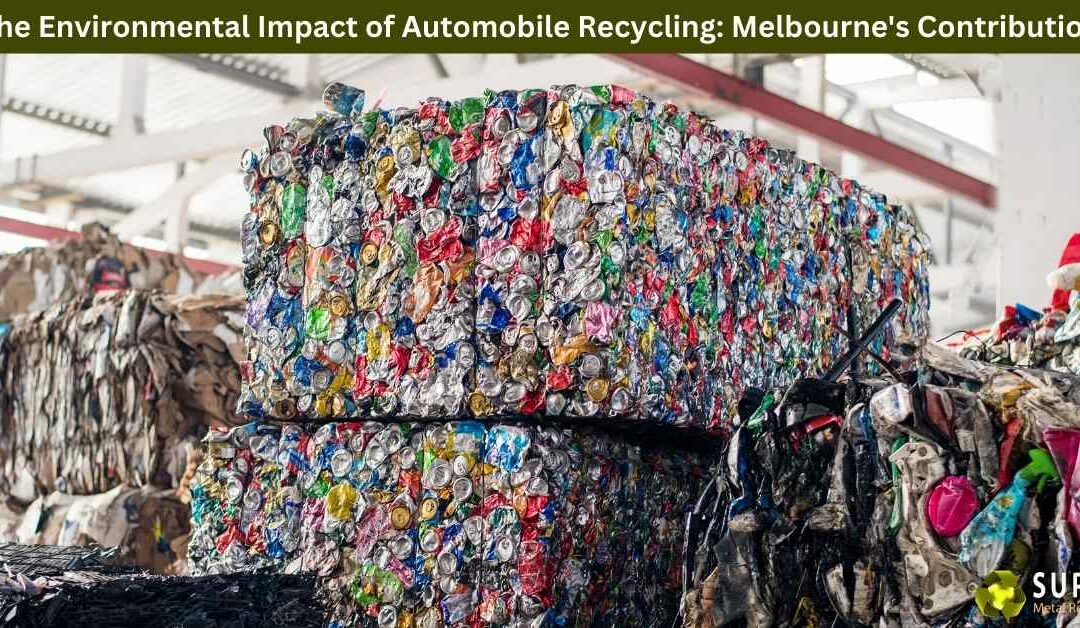The environmental impact of automobile recycling is profound, contributing significantly to resource conservation, pollution reduction, and energy savings. In Melbourne, the efforts to recycle end-of-life vehicles (ELVs) not only help mitigate the adverse environmental effects of automotive waste but also support the city’s broader sustainability goals. Let’s delve into how automobile recycling in Melbourne is making a positive impact on the environment and what makes it a vital component of the city’s green initiatives.
The Importance of Automobile Recycling
Automobiles contain various materials that can be harmful to the environment if not properly managed. These include metals, plastics, glass, and hazardous fluids. When vehicles reach the end of their lifecycle, recycling ensures that these materials are processed in an environmentally friendly manner. Key benefits of automobile recycling include:
- Resource Conservation: Recycling vehicles recovers valuable materials like steel, aluminum, and copper, reducing the need for virgin resources and minimizing the environmental footprint of mining and manufacturing processes.
- Energy Savings: Producing metals from recycled materials consumes significantly less energy than producing them from raw materials. This energy efficiency translates into lower greenhouse gas emissions.
- Pollution Reduction: Proper recycling prevents hazardous substances, such as oil, coolant, and battery acids, from contaminating soil and water sources.
- Waste Reduction: Recycling reduces the volume of automotive waste that ends up in landfills, helping to manage waste more effectively.
Melbourne’s Approach to Automobile Recycling
Melbourne has established itself as a leader in sustainable practices, including automobile recycling. Several key factors contribute to the city’s effective recycling efforts:
Advanced Recycling Facilities
Melbourne is home to state-of-the-art recycling facilities that utilize advanced technology to dismantle, process, and recycle ELVs efficiently. These facilities are equipped with automated systems for sorting and recovering materials, ensuring that the maximum amount of recyclable material is extracted from each vehicle.
Strict Environmental Regulations
The city’s stringent environmental regulations mandate responsible recycling practices. Companies involved in automobile recycling must adhere to guidelines that ensure the safe handling and disposal of hazardous materials, proper storage of recyclable components, and compliance with emission standards. These regulations are designed to protect the environment and promote sustainable practices within the industry.
Community Engagement and Awareness
Melbourne places a strong emphasis on community engagement and raising awareness about the importance of automobile recycling. Public education campaigns and partnerships with local organizations help inform residents about the benefits of recycling their old vehicles and the proper disposal methods. Increased awareness leads to higher participation rates and more vehicles being recycled responsibly.
The Environmental Impact of Melbourne’s Automobile Recycling
Reduction in Greenhouse Gas Emissions
One of the most significant environmental benefits of automobile recycling in Melbourne is the reduction in greenhouse gas emissions. Recycling metals from ELVs requires less energy compared to extracting and processing virgin metals. This energy efficiency results in lower carbon dioxide emissions, contributing to the fight against climate change. For instance, recycling steel saves about 74% of the energy needed to produce it from raw materials.
Conservation of Natural Resources
Automobile recycling conserves natural resources by recovering and reusing materials that would otherwise require mining and processing. The steel, aluminum, and other metals recovered from recycled vehicles can be used to manufacture new products, reducing the demand for virgin materials and preserving natural ecosystems.
Prevention of Pollution
Recycling ELVs in Melbourne involves the safe removal and disposal of hazardous materials such as oil, coolant, and batteries. These substances, if not handled correctly, can lead to soil and water pollution. By ensuring these materials are managed properly, Melbourne’s recycling efforts prevent environmental contamination and protect public health.
Reduction in Landfill Waste
Automobile recycling significantly reduces the amount of waste that ends up in landfills. Vehicles are carefully dismantled to separate recyclable materials from non-recyclable ones. The metal, plastic, glass, and rubber components are processed and repurposed, leaving only a small fraction of waste that requires disposal. This reduction in landfill waste helps extend the life of existing landfill sites and reduces the environmental impact of waste disposal.
Future Directions for Melbourne’s Automobile Recycling
Embracing Circular Economy Principles
Melbourne is increasingly embracing circular economy principles, which focus on keeping materials in use for as long as possible. In the context of automobile recycling, this means designing vehicles with recyclability in mind, enhancing material recovery processes, and promoting the use of recycled materials in new vehicle production. By adopting these principles, Melbourne aims to create a more sustainable and resilient recycling system.
Technological Innovations
The future of automobile recycling in Melbourne will be shaped by technological innovations. Advances in robotics, artificial intelligence, and material science will enable more efficient and precise recycling processes. For example, automated sorting systems can identify and separate different types of metals with high accuracy, improving material recovery rates and reducing contamination.
Collaboration and Partnerships
Collaboration between government agencies, recycling companies, and automotive manufacturers is essential for advancing the recycling industry. Partnerships can facilitate the sharing of best practices, development of new technologies, and implementation of policies that support sustainable recycling. Melbourne’s commitment to fostering collaboration will drive continuous improvement in its automobile recycling efforts.
Conclusion
Automobile recycling plays a crucial role in reducing the environmental impact of automotive waste and supporting Melbourne’s sustainability goals. Through advanced recycling facilities, strict regulations, community engagement, and a focus on innovation, Melbourne is making significant strides in transforming end-of-life vehicles into valuable resources. As the city continues to embrace circular economy principles and technological advancements, its contribution to environmental conservation and pollution reduction will only grow stronger. The positive environmental impact of automobile recycling in Melbourne underscores the importance of sustainable practices in building a greener future for all.
If you are in Wheelers Hill, Victoria 3150, and looking for a metal recycling service, this is the best way to visit us.
Super Metal Recycling
345 Frankston – Dandenong Road, Dandenong South VIC 3175
(03) 9706 4909


Recent Comments